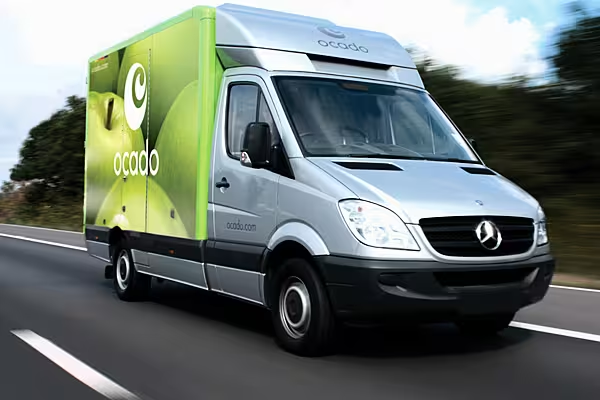Amazon chose "leap day" to announce its tie-up with British supermarket chain Wm Morrison. Internet delivery specialist Ocado would no doubt prefer to wipe this particular date from the calendar.
The arrival of Amazon on the scene isn't great for British grocers Tesco, Sainsbury and Wal-Mart's Asda, who are doing battle with German price-slashers Aldi and Lidl. For Ocado, it's doubly painful.
Ocado shares have already suffered over the past year as long-mooted expectations of a big international partnership, perhaps even with Amazon, have come to nothing. So it's a blow that Amazon has chosen instead to start selling hundreds of Morrison products through its food delivery services: Pantry, a weekly box of groceries, and Prime Now, where products are delivered in one or two-hour time slots.
To make matters worse, Morrison has until now used Ocado exclusively to run its own online deliveries, so striking a competing deal with Amazon will hurt its erstwhile partner. The Morrison-Ocado arrangement will continue, but on less favorable terms to Ocado.
In the new agreement, Morrison will be able to use capacity in a new Ocado warehouse in southern England without having to inject any capital. Ocado will also have to fulfill grocery orders directly from some Morrison stores – moving away from its mantra of only using big state-of-the-art warehouses – although Morrison will pay for this service. The upshot is that Morrison has squeezed more value from a 25-year contract struck by its former CEO Dalton Philips.
The double-blow raises fresh questions about Ocado's bloated valuation, based in part on the expectation that it would itself strike a large Amazon-type deal (including being taken over) or run the Internet delivery operations of a retail giant. Another justification for the high rating is that Ocado's technology makes it attractive to partners. Even after the big falls of recent months, the shares still trade on about 90 times this year's estimated earnings. The enterprise value is 1.2 times forward sales, according to Bloomberg data, compared to 0.5 times for the wider supermarket group.
True, Ocado has tens of thousands of product lines, compared with the hundreds that Morrison will supply to Amazon. So there's still a way to go until Amazon catches up. But this is probably just the US giant's opening gambit, while Morrison also brings a food manufacturing capacity.
Morrison has for a while looked the most vulnerable in the pack of British supermarkets to the price-cutting onslaught. But the Amazon deal is a sign of its improved fortunes this year, which could lead to a buyout by its executive team as Gadfly has argued. Bernstein calculates that if the Amazon deal added £500 million of yearly sales, it would boost Morrison's 2017/18 earnings per share by 12 per cent.
For its part, Ocado still hopes for some kind of partnership deal within the next few weeks. Today's bombshell makes that imperative if they don't want to be stuck as the leap-year laggards.
News by Bloomberg, edited by ESM. To subscribe to ESM: The European Supermarket Magazine, click here.














